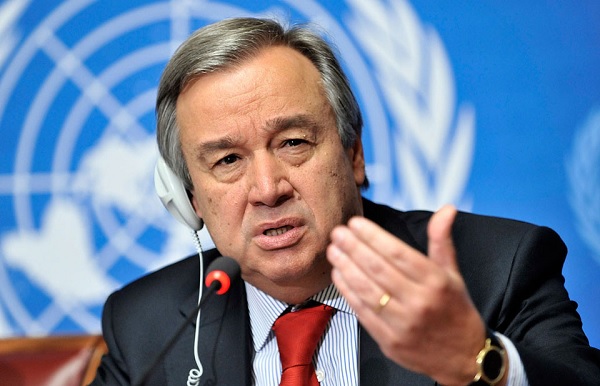Peace Science Digest, September 28, 2018.

Context:
The Secretary-General of the United Nations, António Guterres, calls for members to support UN Peacekeeping operations with greater monetary, equipment, and personnel commitments. Peace Science shows that the militarization of peacekeeping forces may protect civilians in the short-term but also carry unintended consequences.
In the News:
“Since the first blue helmets were deployed in 1948, peacekeeping has enabled the countries of the world to meet common threats to peace and security and share the burden under the U.N. flag. Over the past 70 years, more than 1 million peacekeepers—women and men, soldiers, police, and civilians from countries across the world—have responded to a vast range of conflicts, and peacekeeping itself has adapted constantly to meet these demands. The U.N. Security Council has dispatched more than 70 operations to help maintain cease-fires between countries, end protracted civil wars, protect the vulnerable and save lives, strengthen the rule of law, establish new security institutions, and help new countries, such as Timor Leste, come into being. But peacekeeping is a very dangerous business. Tens of thousands of peacekeepers today are deployed where there is little peace to keep. Last year, 61 peacekeepers were killed in hostile acts, and our peacekeepers were attacked more than 300 times—almost once a day. In Mali and in the Central African Republic, I saw for myself the important work the blue helmets do every day—not only keeping the peace but supporting the delivery of humanitarian aid and protecting civilians. I’ve also laid too many wreaths for fallen peacekeepers.”
“We have enacted new measures to address the rise in fatalities, and I have commissioned independent strategic reviews of each peacekeeping operation. But it’s clear to me that we don’t have any chance of succeeding without the world’s clear and unambiguous support. Expectations of peacekeeping vastly outstrip both support and resources…That is the background to the Action for Peacekeeping initiative, launched in March. It aims to ask all U.N. member states and other partners to revitalize their commitment to U.N. peacekeeping so that we can continue to improve it together. We’ve had in-depth and candid discussions to identify the areas where more effort is required and created a Declaration of Shared Commitments on U.N. Peacekeeping Operations. The declaration represents a clear and urgent agenda for peacekeeping. By endorsing the declaration, governments show their commitment to advancing political solutions to conflicts, to strengthening protection for the vulnerable people under our charge, and to improving the safety and security of our peacekeepers. Now we need to translate these commitments into practical support in the field. The declaration calls for all of us to improve our operations, to increase the participation of women in all areas of peacekeeping, to strengthen partnerships with governments, and to take measures to ensure our personnel live up to the highest standards of conduct and discipline.”
Insight from Peace Science:
- Robust peacekeeping, though it may succeed in protecting civilians in the short-term, has unintended consequences that may jeopardize other important goals and the broader work of UN missions.
- The greater militarization and partiality entailed by robust peacekeeping may actually put civilians at risk, along with peacekeepers, other UN officials, and independent humanitarian actors, in some cases also diminishing humanitarian space/access.
- The state-centrism entailed by robust peacekeeping may compromise the more substantive aspects of a UN mission, prejudicing its human rights, peacebuilding and development, and political work too far in favor of the government’s concerns at the exclusion of others’.
- The “robust turn” in UN peace operations may more broadly jeopardize peacekeeping principles and consensus around UN peacekeeping, cause a drop in troop contributions from UN member states, and impede cooperation between the UN and humanitarian actors
Robust Peacekeeping: The use of force by a United Nations peacekeeping operation at the tactical level, with the authorization of the Security Council, to defend its mandate against spoilers whose activities pose a threat to civilians or risk undermining the peace process.
(United Nations. (2008). United Nations Peacekeeping Operations: Principles and Guidelines “Capstone Doctrine”. New York: United Nations Secretariat. http://www. un.org/en/peacekeeping/documents/capstone_eng.pdf.)
References:
- “Armed peacekeepers really do protect civilians — with one big exception” By Brandon Prins & Anup Phaya for MonkeyCage, Washington Post. June 14, 2018.
- Peace Science Digest Volume 2, Issue 2: “The Unintended Consequences of “Robust” UN Peace Operations“.








